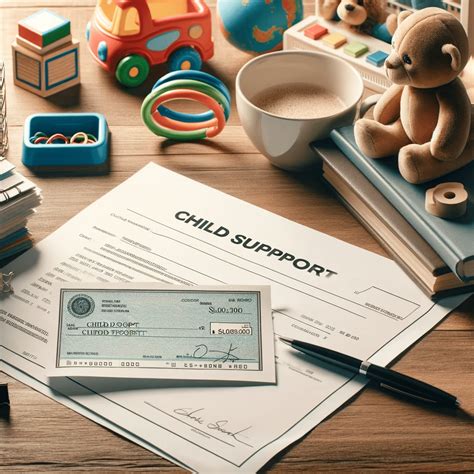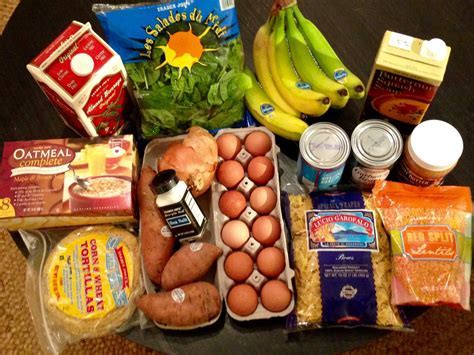Child Support Affects Food Stamps

Understanding the Relationship Between Child Support and Food Stamps

In the United States, many families rely on government assistance programs like food stamps to make ends meet. However, the rules surrounding these programs can be complex, especially when it comes to child support. Child support is a critical aspect of ensuring that children receive the financial support they need from both parents, but it can also impact the amount of assistance a family receives from programs like Supplemental Nutrition Assistance Program (SNAP), commonly known as food stamps. This article will delve into how child support affects food stamps, helping families and individuals understand the intricacies of these systems.
How Child Support Works

Before exploring the impact of child support on food stamps, it’s essential to understand how child support works. Child support is a payment made by a parent to help support their child financially. The amount of child support is typically determined by the court based on various factors, including the income of both parents, the number of children, and the amount of time each parent spends with the children. Income withholding is a common method used to collect child support, where the paying parent’s employer withholds a portion of their income to pay for child support.
Food Stamps and Eligibility

Food stamps, or SNAP, is a program designed to help low-income individuals and families purchase food. Eligibility for SNAP is based on income and resource limits, which vary by state and household size. Generally, to qualify for SNAP, a household must meet certain income and resource requirements, and the amount of assistance received is based on the household’s size, income, and expenses. Resources, such as cash, savings, and stocks, are considered when determining eligibility, but some resources, like a primary residence, are typically exempt.
Impact of Child Support on Food Stamps

Child support can affect food stamp eligibility and the amount of assistance a household receives in several ways: - Income Consideration: Child support received is considered income for SNAP purposes. This means that the amount of child support a household receives can impact its eligibility for SNAP and the amount of benefits it receives. - Expense Deductions: On the other hand, child support paid out is considered an expense and can be deducted from the household’s income when calculating SNAP eligibility and benefit amounts. This can help reduce the household’s income for SNAP purposes, potentially increasing the amount of benefits it is eligible to receive. - Reporting Requirements: Recipients of SNAP must report changes in their income, including child support, to the SNAP office. Failure to report these changes can result in incorrect benefit amounts or even termination of benefits.
Calculating SNAP Benefits with Child Support

Calculating SNAP benefits involves considering the household’s income, expenses, and resources. Here’s a simplified overview of how child support factors into this calculation: 1. Gross Income: Start with the household’s gross income from all sources. 2. Deductions: Apply deductions for items like child support paid, rent/mortgage, utilities, and other allowable expenses. 3. Net Income: Calculate the net income by subtracting the deductions from the gross income. 4. Benefit Calculation: Use the net income, along with the household size and other factors, to determine the SNAP benefit amount.
| Household Size | Monthly Gross Income Limit | Monthly Net Income Limit |
|---|---|---|
| 1 | $1,916 | $1,276 |
| 2 | $2,606 | $1,726 |
| 3 | $3,296 | $2,176 |

Strategies for Managing Child Support and Food Stamps

For families navigating both child support and food stamps, here are some strategies to consider: - Accurate Reporting: Always report changes in income, including child support, to the SNAP office to ensure benefits are calculated correctly. - Budgeting: Create a budget that accounts for child support payments, whether receiving or paying, to better manage household finances. - Seeking Assistance: If experiencing difficulties with child support or SNAP, consider seeking help from a social services agency or a legal aid organization.
📝 Note: Understanding the specific rules and regulations regarding child support and SNAP in your state is crucial, as policies can vary significantly.
In summary, child support plays a significant role in determining eligibility and benefit amounts for food stamps. By understanding how child support affects food stamps and carefully managing household finances, families can better navigate these complex systems and ensure they receive the assistance they are eligible for. As policies and regulations are subject to change, staying informed is key to maximizing the benefits available to support families in need.
How does child support impact food stamp eligibility?

+
Child support received is considered income for SNAP purposes, which can affect eligibility and benefit amounts. However, child support paid out can be deducted as an expense, potentially increasing the amount of benefits a household is eligible to receive.
Do I need to report changes in child support to the SNAP office?

+
Yes, it’s crucial to report any changes in child support, whether you’re receiving or paying it, to the SNAP office. This ensures that your SNAP benefits are calculated correctly based on your current income and expenses.
Can child support affect the amount of food stamps I receive?

+
Yes, child support can impact the amount of food stamps you receive. The income from child support is considered when calculating your SNAP benefits, and deductions for child support paid out can also influence your benefit amount.



